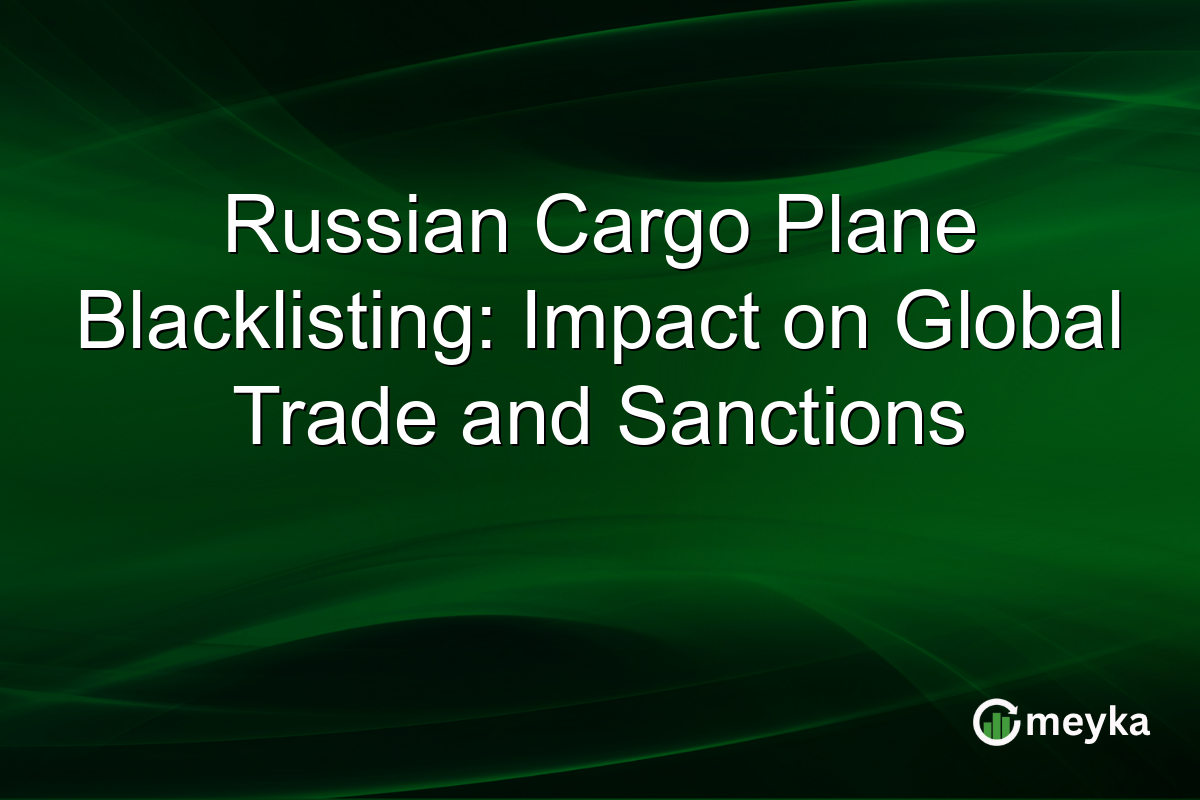Russian Cargo Plane Blacklisting: Impact on Global Trade and Sanctions
A recent event has once again highlighted the intensifying effects of aviation sanctions amid rising geopolitical tensions. A blacklisted Russian cargo plane was grounded in Canada, bringing to focus the realities of global trade amid ongoing sanctions. The move reflects tightening enforcement, posing new challenges for compliance within the aviation sector. This episode is a reminder of how aircraft sanctions in 2025 could reshape logistics, influence Canada-Russia trade, and heighten aviation compliance difficulties.
A Deepening Trade Rift
Sanctions against Russia have progressively tightened, affecting sectors across the globe. The grounding of the blacklisted Russian cargo plane is part of broader efforts to enforce aviation sanctions in 2025. By halting such planes, Canada reinforces its commitment to these global efforts.
This indicates a growing gap in Canada-Russia trade. Sanctions disrupt supply chains, complicating logistics for exporters and importers. The grounded plane symbolizes a larger shift in international trade relations, reflecting geopolitical tensions impacting economic activities.
Implications for Aviation Compliance
Aviation compliance is under greater scrutiny amid these developments. Airlines linked to Russia face increased checks, complicating routes and operations. Regulatory bodies are tightening oversight, requiring greater diligence from companies dealing with Russian aviation assets.
This affects logistics firms globally, who must adapt to evolving compliance demands. For companies, this means heightened operational costs and strategic adjustments to avoid potential sanctions breaches.
Broader Impact on Global Trade
The blacklisting incident highlights vulnerabilities in international trade. It showcases how geopolitical strategies can redefine logistics networks, influencing trade policies worldwide. In 2025, such actions resonate beyond borders, affecting markets globally.
For exporters and importers, this could mean reassessing partnerships and logistical networks. Compliance is key, as companies navigate the delicate balance between adhering to international rules and maintaining business operations. External sanctions are now a primary consideration in trade strategy adjustments.
Final Thoughts
The grounding of the blacklisted Russian cargo plane in Canada stands as a significant marker of the times. This not only illustrates the impact of aviation sanctions but also signals a shift towards more stringent global trade practices. Companies worldwide must stay vigilant, ensuring their operations align with international compliance standards to avoid costly disruptions. As Meyka advises, staying informed with real-time insights and analytics is crucial in these evolving landscapes. By managing risks effectively, businesses can mitigate impacts and explore new opportunities within the global market environment.
FAQs
Aviation sanctions are restrictions imposed by countries to limit air operations. These can target specific airlines or nations, impacting their ability to operate freely in international airspace.
Blacklisting complicates logistics by disrupting planned routes, requiring companies to find alternative paths, which can increase costs and delays in delivery times.
The cargo plane was grounded due to its listing on international sanctions. This reflects a broader strategy to enforce compliance with sanctions against Russia.
Disclaimer:
This is for information only, not financial advice. Always do your research.






